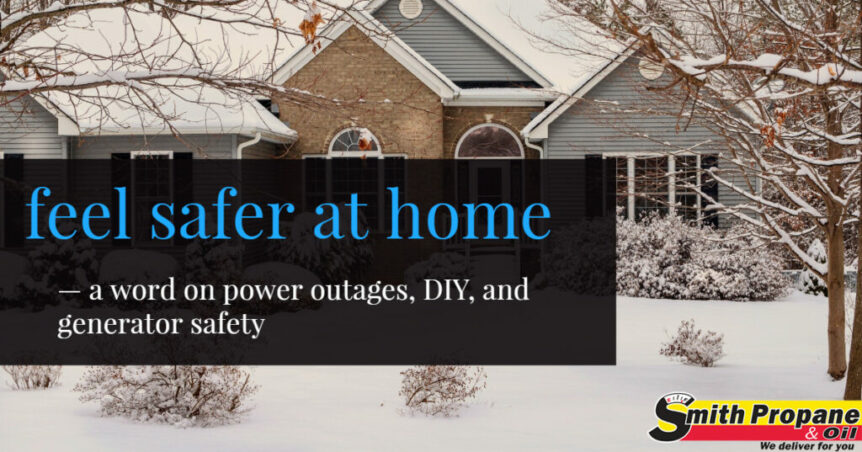Power outage = no heat
During power outages, even though customers have fuel, they can’t get heat. Unfortunately, your heating system will not run without electricity — regardless of whether your fuel is heating oil, natural gas, propane or, obviously, electricity. (Only some very old heating systems can operate without power.)
If your home is without power for an extended period of time, unplug appliances and turn off circuit breakers. This will prevent surges when the electricity returns. Before restarting your system, check that the system’s power switch and circuit breakers are back on. Do not press your unit’s reset button more than once.
Once you have power restored, make sure that there is no standing water in your basement. If your system requires service to get it started again, for safety reasons it cannot be worked on when water is pooling around it.
If flood water has reached your heating system, call your equipment service provider for an inspection before you restart it. The valves and controls are vulnerable to water damage — even if it cannot be seen. Corrosion begins inside the valves, and damage may not be apparent when the outside is clean and dry.
Don’t DIY
In this digital age, the initial response to solving a problem is often to go online and do research. That’s why do-it-yourself (DIY) projects are such a big trend these days. It seems as though people of all ages and skill levels are checking out YouTube videos for a quick-fix way to heal whatever ails their home.
But what those videos usually don’t show is what happens when that amateur repair doesn’t go as planned. Over the years, we’ve seen some costly — and even dangerous — consequences. That’s especially true when someone starts fiddling around with complicated heating systems. Repairing a heating system presents unique challenges that more often than not require extensive training and expensive diagnostic equipment to assess and fix.
The bottom line: If you need a heating system repair, don’t attempt to do it yourself — call your equipment service provider. Their technicians have the training, experience, and tools to find and fix your problem quickly, correctly and safely so you can focus on the things that matter in your life — like having fun with your family.
Generator Safety
With more people relying on both portable and permanent generators than ever before, it’s important to share the following emergency generator safety tips:
✔️Installed whole-house generators should have a transfer switch to ensure a smooth transition when the lights go out. A transfer switch cuts electricity flow to the grid while the generator is on. This prevents the power in the generator from “back-feeding” into outside power lines and potentially injuring utility crews.
✔️Never operate a portable generator in an enclosed or partially enclosed space; keep it outside, at least 10 feet from your home and away from windows and doors.
✔️If your generator is not connected to a fuel tank, be sure to store its fuel in a properly labeled container.
✔️Always use a grounded extension cord with the proper power rating.
✔️Have your generator checked and adjusted annually for safety and efficiency.

